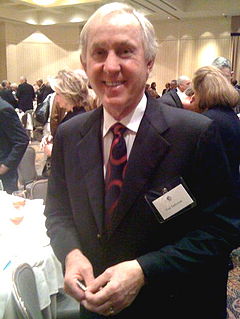A Quote by Edward Norton
If you try to make interesting films, you're going to be disappointed most of the time. I choose just not to look at it that way. I don't look at American History X as a failure, or Fight Club as a failure, or 25th Hour as a failure, or Larry Flynt as a failure, or any of the movies that I care about that I've made that were not immediately successful. I'll stand with those movies any day over 90 percent of the movies that came out at the same time that made a hundred million dollars
Quote Topics
Related Quotes
Failure's relative. I've always felt, even early on, if I lose the freedom to fail, something's not right about that. It's how you treat failure, too. There's something to learn from it. I've had movies that have failed colossally, so you kind of analyze your failures: What kind of failure was it? A failure because it's misunderstood by others? A failure because you misunderstood it yourself?
Perfectionist is sometimes the wrong word... It means like you're never satisfied, or you're upset by every single failure - any type of failure. And so for me, I don't look at failure as necessarily a bad thing as long as I'm able to learn from it and take something from it, so that next time I'm in that situation I know how to succeed.
When I was growing up, my dad would encourage my brother and I to fail. We would be sitting at the dinner table and he would ask, 'So what did you guys fail at this week?' If we didn't have something to contribute, he would be disappointed. When I did fail at something, he'd high-five me. What I didn't realize at the time was that he was completely reframing my definition of failure at a young age. To me, failure means not trying; failure isn't the outcome. If I have to look at myself in the mirror and say, 'I didn't try that because I was scared,' that is failure.
Richard Donner made great movies. Seminal movies. The Academy, though, and we have to be careful here, should recognize popular films. Popular films are what make it all work. There was a time when popular movies were commercial movies, and they were good movies, and they had to be good movies. There was no segregation between good independent films and popular movies.
I mean, I love L.A. - I love living here. But I wish that we could make things without the need to hit a home run every single time. It's a unique thing to Hollywood that if you don't do that every time, then you're considered a failure. But it's like, 'Well, are you making movies to be successful? Or are you making movies to learn something?'



































